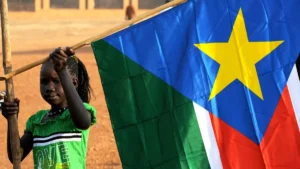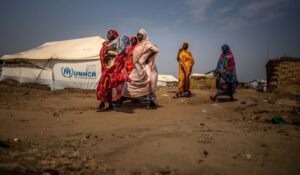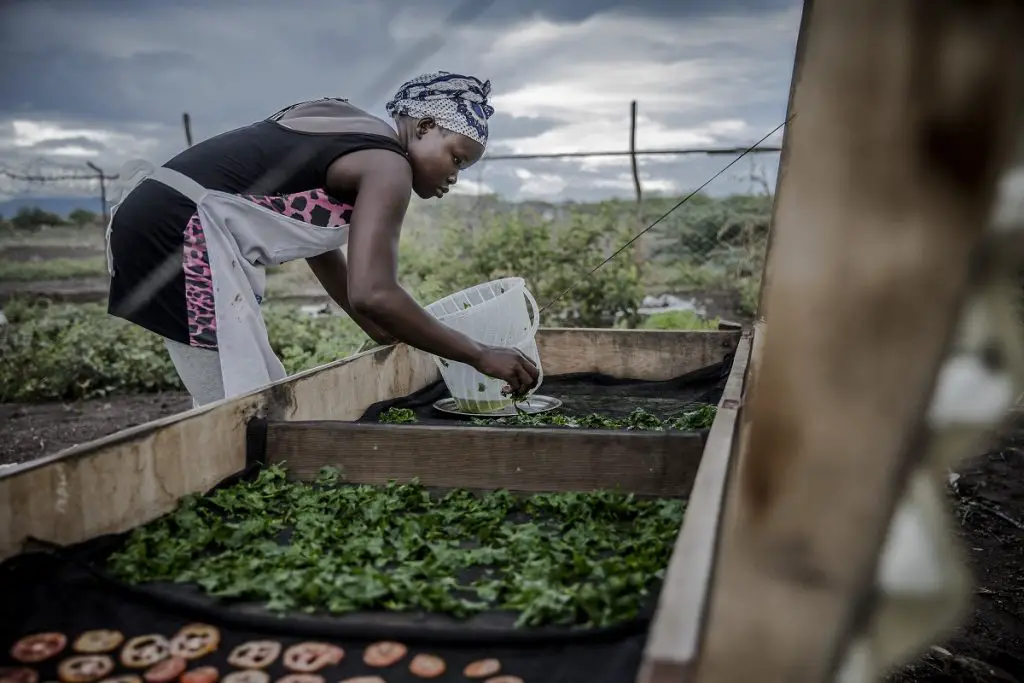- IMF’s Sub-Saharan Africa economic forecast shows 1.2 percent GDP growth
- The US Congress proposes extending Agoa to 2041, covering all African countries
- Millions at risk of famine as fuel tax row halts UN aid operations in South Sudan
- Empowering the Future: Humanity Protocol’s Dream Play Initiative
- TikTok Community Guidelines update aims to curb hate speech and misinformation
- Rwanda sees 39% surge in bank borrowers as Sacco and MFI loan uptake declines
- Kenya Ports Authority wins dispute case over cargo release
- Why Africa can reap billions from digital economy
Browsing: East Africa
Tanzania is in the processes of constructing mega court buildings that are large enough to house all levels of judicial services from the Primary Court all the way to the Court of Appeal. The actual value of the project has not been made public but due to the size and scope, it is estimated to cost onward of multi-million dollars.
The initiative is undertaken by the Judiciary of Tanzania and the resulting six High Court buildings are christened the Integrated Justice Centres (IJC) of Tanzania. The project is already underway across five regions of the country.
The court buildings will be in all major cities including the country’s administrative capital of Dodoma, the tourist hub of Arusha, the lake city of Mwanza and the fast developing agricultural town of Morogoro where ongoing work on the Standard Gauge Railway (SGR) have seen tremendous growth urban to rural migration in search of …
Based in Ethiopia’s capital of Addis Ababa, Coop Bank is growing by leaps and bounds, with profits up 29 percent in the 2018/19 financial year closing the year with USD 20.4 million under lock and key.
More than profit, the Bank also enjoyed huge growth if it’s total assets which shot up by 40 percent, a sector high for Ethiopia’s banking industry. Likewise, its loans and advances also went up an impressive 56 percent representing more than double its performance in the previous year.
The bank has credited the asset growth to deposit mobilisation which pushed up loans and advances. The bank had yet an impressive growth this time in deposits which increased 40 percent.
Coop Bank mustered its investment in NBE bonds which it increased to more than double (53%) of what it had in the previous financial year. Further still, this immense investment represents 20 percent of its …
In the backdrop of Tanzania’s Central Bank announcing a stimulus package for commercial banks, loans advanced by banks have shot up significantly over the last year and the stimulus package is expected to sustain if not increase lending.
The Central Bank, the Bank of Tanzania (BoT) has this week released its Consolidated Zonal Economic Performance Report which shows lending by commercial banks have increased considerably in the last year.
The report shows that the highest amount of growth in bank loans was parallel to ongoing national infrastructure development works. The highest increase in loans was to companies operating in the central and south eastern zones owing to increased construction projects and to trading activities, respectively.
This would explain reduced lending in the commercial capital of Dar es Salaam. Lending in the bustling port city actually fell 1.6 percent compared to the same period last year. However, despite the percentage decrease, …
Tanzania’s Controller and Auditor General (CAG) has unveiled the country’s Local Government Authorities (LGA) have been involved in the embezzlement of millions of dollars issued to fund nonexistent projects.
Reporting to the country’s President John Magufuli, the CAG’s report indicated that LGA’s across the country have been corruptly siphoning tax payers money for individual gain. The 2018/19 report shows what can only be described as gross mismanagement of public funds.
In the report, Tanzania’s CAG Mr Charles Kichere also reported the gross misuse of funds in excess of USD 342.2 million by the country’s Local Government Authorities (LGA).
Worse still, while the LGAs collected more than USD 46.5 million in the said financial year, only 26.37bn/ was allocated to the rightfully designated development projects while the remaining 17.41bn/- was, according to the CAG report, misused.
Further still, another 10.39bn/- in local revenue that was collected by some 84 Local Government …
Africa is prone to hunger crises every so often when disasters strike and with the covid-19 coronavirus pandemic, it may not be different.
In East Africa, for instance, the pandemic hit when farmers are preparing their lands for planting making it a challenge for the region that is also battling a desert locust outbreak.
So, what does this mean to the region which has suffered the brunt of inadequate food supplies which keep dwindling by the day?
For starters, the UN-FAO has warned that the locust outbreak in East Africa is the worst to strike Ethiopia and Somalia for 25 years — for Kenya, in 70 years. Djibouti, Eritrea and Uganda have also been affected.
Coronavirus: African leaders stuck with neglected, outdated healthcare systems
“The situation is especially extremely alarming in East Africa, where 20 million people are already considered acutely food insecure. There, the swarms have laid eggs and …
Barely a week after Tanzania’s President John Magufuli ordered engineers to be sacked should a bridge (or any infrastructure) under their jurisdiction fails, the heavy toll of rains on infrastructure in the country has been estimated at 40bn/-
Its only the beginning of the first heavy rains season but infrastructures across the country are taken a heavy beating and succumbed. The damage caused is not only destroying bridges, rails and roads, it is also destroying careers as well.
The country’s President Dr. John Magufuli ordered sacking of any engineer where bridges and other infrastructures collapse, should they fail to respond accordingly. The president gave the order when visiting a damaged bridge that had rendered transportation null for over a fortnight on the outskirts of Dar es Salaam.
Responding to the ongoing rains and the resulting damage to infrastructure, Mr. Isack Kamwelwe, the country’s Minister for Works, Transport and Communication, told …
In a bid to keep the sector going, the Tanzanian government has announced plans to significantly lower hunting permit fees.
The relief comes shrouded by coronavirus threat which is the push behind the announced review of annual hunting blocks license fees.
Local media quoted the Deputy Minister for Natural Resources and Tourism, Mr Constantine Kanyasu, announcing the fee slash plans. According to the high government official, the planned fee cut is in response to requests by hunting companies who are complaining of reduced bookings owing to the global coronavirus threat.
“The Ministry of Natural Resources and Tourism will meet hunters again before the end of this month to inform them on the government’s action to rescue the subsector,” the Deputy Minister told media.
On behalf of the hunting companies, the Tanzania Hunting Operators Association (Tahoa) pointed out that there is still room to review the fees ahead of the hunting …
Food security has always been a matter of much concern across Africa, the threat has only been extenuated by the worsening coronavirus outbreak.
With the rest of the World tied up with response to the coronavirus in their own countries, scientists in Africa have to step up to the food security threat on the continent.
Up to the task are Tanzanian scientists who early this week, in the nick of time, announced a breakthrough in maize research that may very well answer the impending food security threat.
The Tanzania Agricultural Research Institute, announced its scientists have developed two genetically modified maize varieties that to a great extent, stand to solve the food security issue in the country and region at large.
First is a maize variety that is much higher in protein concentration than the regular maize types now been grown across the country. This variety will serve to give …
Tanzania has shutdown all activities at one of its largest open air livestock market, the Meserani Livestock Auction Market in Monduli, Arusha.
To enforce the ban, the government sent down armed police officers to stop any trading from taking place; a daunting task when you take into consideration the fact that the market handles well over 1,000 traders every single day.
The move is in line with the national ban on mass gatherings in the face of the ongoing Covid-19 threat.
Safety first, but the close to 200 000 pastoralists who exclusively rely on cattle trade now have to find alternative income generating solutions. As to be expected, the pastoralists are up in arms over the decision to shut down their sole source of daily bread, or meat in this case.
Many are of the view, that the market should be allowed to continue to trade but to take precautionary …
As the rest of the country shuts down all entry ports, heavily reliant on tourism, the spice Isles of Zanzibar are allowing charter flights to land but with strict conditions.
Isles authorities have permitted charter flights bringing tourists to the island to land but on condition that all persons on board enter a 14 days quarantine stay, at their own expense.
This surprising turn of events happens in the backdrop of ongoing global threat of the spread of coronavirus. Even leading sports leagues have been cancelled and regional high profile meetings are been held on conference calls.
Across Africa, the tourism industry has come to an almost complete shutdown. It is time immemorial since a disease stopped people from touring and going for holidays, at least not since the deadly World War I and II power viruses.
With most all African countries eventually succumbing to the threat and finally closing …












